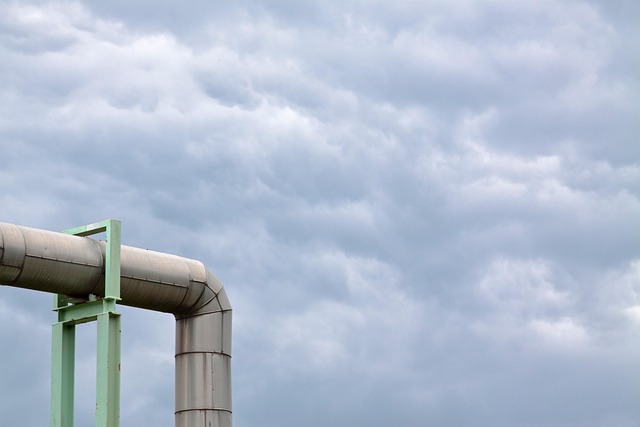Gas-fired water heaters in commercial settings face corrosion challenges from varying water compositions, temperature fluctuations, and pressure changes. Stainless steel, with its superior corrosion resistance due to high chromium content, is an ideal material choice for these environments. Regular maintenance, including cleaning, inspection, and testing, is crucial to maximize the lifespan of these heaters, ensuring efficient heating for restaurants, hotels, and institutional settings. Manufacturers employ coatings, advanced materials, and drainage systems to enhance performance and longevity.
Gas-fired water heaters are essential in commercial settings, but they face a persistent challenge: corrosion. This article delves into the heart of this issue, exploring how stainless steel emerges as a superior material choice for resistance. We’ll dissect the mechanisms of corrosion in these heaters and present effective maintenance strategies to ensure longevity. Discover practical insights on maintaining optimal performance in your commercial gas fired water heaters.
- Understanding Corrosion in Commercial Gas Water Heaters
- Stainless Steel: The Resistant Material Choice
- Effective Maintenance Strategies for Longevity
Understanding Corrosion in Commercial Gas Water Heaters

Corrosion is a significant challenge for commercial gas-fired water heaters due to the harsh operating environments they face. These systems, frequently utilized in industrial hot water applications like restaurant water heating and hotel hot water systems, are exposed to varying water compositions, temperature fluctuations, and pressure changes. The presence of chlorides, carbonates, and other impurities can accelerate corrosion rates, leading to potential failures in commercial water heating equipment.
Understanding the unique corrosion mechanisms associated with gas fired systems is crucial for selecting appropriate materials and design strategies. High-capacity heaters, both tankless water heaters and storage water heaters, require robust corrosion resistance to ensure longevity in institutional water heating environments. By employing specialized coatings, advanced material formulations, and efficient drainage systems, manufacturers can combat corrosion, thereby enhancing the performance and lifespan of these essential commercial gas heaters.
Stainless Steel: The Resistant Material Choice

Stainless steel is a material renowned for its exceptional resistance to corrosion, making it an ideal choice for commercial gas-fired water heaters. Its high chromium content forms a protective layer, known as passivation, that prevents oxidization and rusting. This property is especially valuable in harsh environments where water may contain corrosive elements or varying pH levels. When utilized in commercial water heating systems, stainless steel offers durability and longevity, ensuring reliable performance over time.
Furthermore, the material’s versatility allows it to be employed in a variety of commercial gas heaters, including tankless models for instant hot water and storage tanks for larger-capacity applications like restaurants, hotels, and institutional settings. The industrial-grade stainless steel used in these systems can withstand high temperatures and intense pressure, making it a safe and efficient choice for meeting the demanding hot water needs of commercial spaces.
Effective Maintenance Strategies for Longevity

Effective Maintenance Strategies for Longevity
Regular maintenance plays a pivotal role in extending the lifespan of commercial gas-fired water heaters. For optimal performance and resistance against corrosion, it’s essential to implement structured maintenance routines. This includes periodic cleaning to remove sediment buildup, which can hinder efficient heating and foster rust formation. Additionally, inspecting connections and fittings for any signs of leaks or damage is crucial, as these issues not only waste valuable resources but also accelerate equipment deterioration.
Focusing on proactive measures, such as checking pressure relief valves and ensuring proper drainage, can prevent catastrophic failures. For industrial hot water applications like restaurant water heating or hotel hot water systems, regular testing of gas fired systems and their components is recommended. This includes verifying the integrity of storage water heaters or tankless water heaters, which are integral to institutional water heating needs. By adopting these effective maintenance strategies, commercial property owners can ensure reliable and efficient gas-fired water heating for years to come.
Stainless-steel commercial gas-fired water heaters offer a robust solution for industrial settings, combining durability and resistance to corrosion. By understanding the unique challenges of these environments and leveraging the material’s natural properties, along with effective maintenance strategies, businesses can ensure these heaters provide reliable hot water for years to come, enhancing overall efficiency and reducing downtime in commercial applications.
